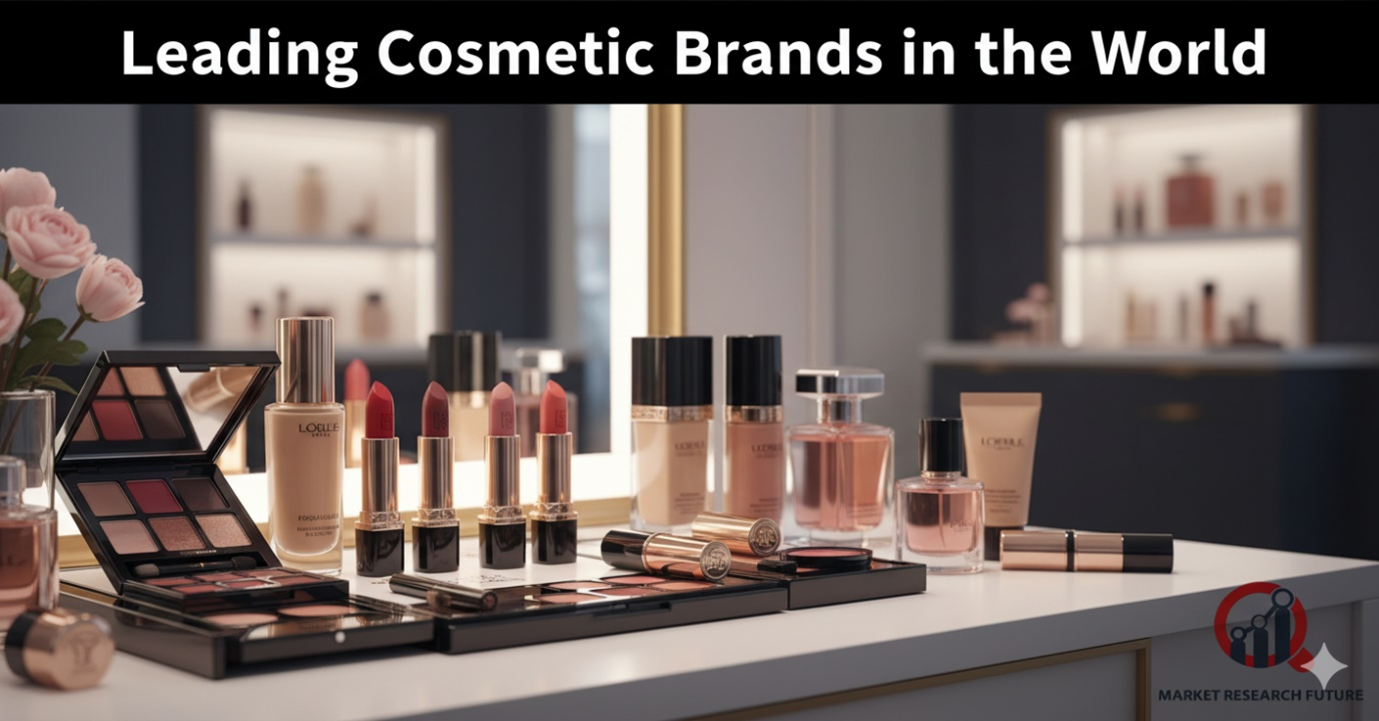Leading Cosmetic Brands in the World

In the cosmetics business, quality and new ideas are what drive it. The cosmetic industry will grow if people want a wider range of beauty products. People want make-up that lasts, which makes them look good and helps them keep their skin healthy. Another important part is that manufacturers can promote their goods through good advertising and marketing. Effective production and distribution lead to a wide range of products that meet the different needs of customers.
Beauty Products That Use Technology
Companies make brands for customers using AI and evidence-based skin analysis as ways to make things. With evidence-based skin analysis, people can see how products work before they buy and use them. Tech companies are adding ways to keep an eye on changes in skin. This lets them meet the needs of their customers. A Frost and Sullivan report talks about how the demand for beauty products is going up.
Best Cosmetic Brands in the World
1. L'Oreal
The French brand has been making high-end beauty products for women all over the world. It has a huge selection of makeup for women, so there's something for every occasion. L'Oreal has everything you need in one place, from foundations to lip liners, eye liners to foundations, and hair care products.
2. Chanel
Coco Chanel started the French fashion house in 1910, and it still rules the market for high-end cosmetics that change the way people look and feel. Under its brand name, Chanel has made a lot of different clothes, accessories, and cosmetics. Chanel has found a niche in the market with its line of night creams, serums, and moisturizers. Chanel's marketing plan is helping it grow in the next few years. Chanel has used e-commerce stores and supermarkets to make its products available all over the world.
3. Estee Lauder
This high-end brand has been around since 1946 and is the best at making both cheap and expensive brands. "Bringing the best to everyone we touch" is their slogan. The company has a presence in over 150 countries around the world and has many brand names under its name. Some of the brands are Bobbi Brown, Clinique, Aramis, Michael Kors, and Tommy Hilfiger.
4. Unilever
The brand of consumer goods that was based in more than one country was the fourth-largest FMCG company by sales. Unilever owns some of the most well-known brands, such as Axe, Dove, Vaseline, and Lifebuoy. Before products are sent out, the Safety and Environment Assurance Center (SEAC) checks to see if they are safe for the environment. This brand has become more popular over the years, and millions of people around the world use it.
5. Dior
Dior has a strong presence around the world thanks to its perfumes, such as Miss Dior, J'Adore, and Dior Homme. The company is based in Paris.
People Want Organic Products
The World Wide Web has made it possible for consumers and manufacturers to talk to each other in many new ways. People are asking for more natural cosmetics in the cosmetics market. Strong research and development, along with new and advanced products, help producers stay on top of the market.

Leave a Comment